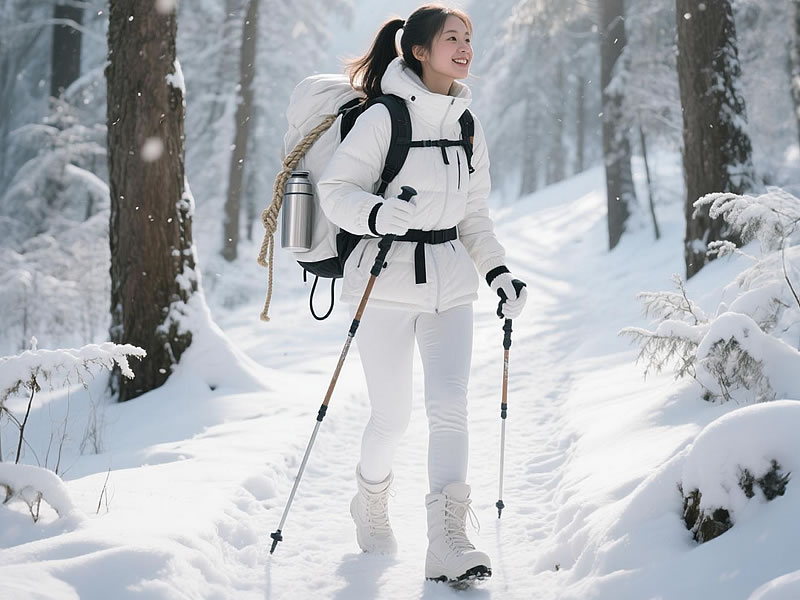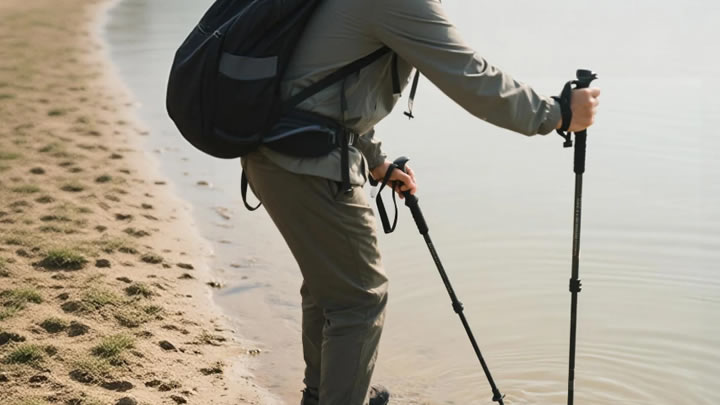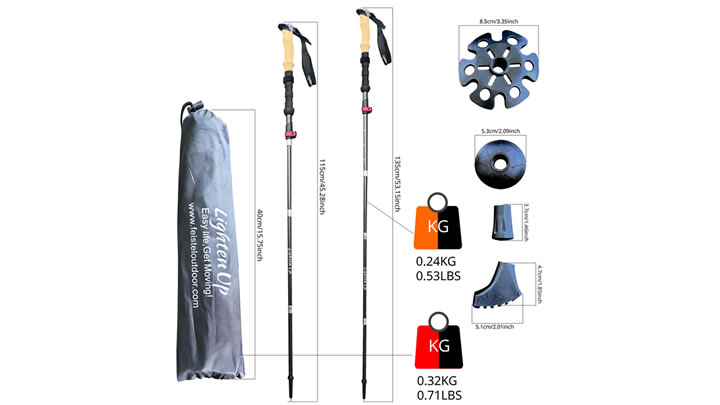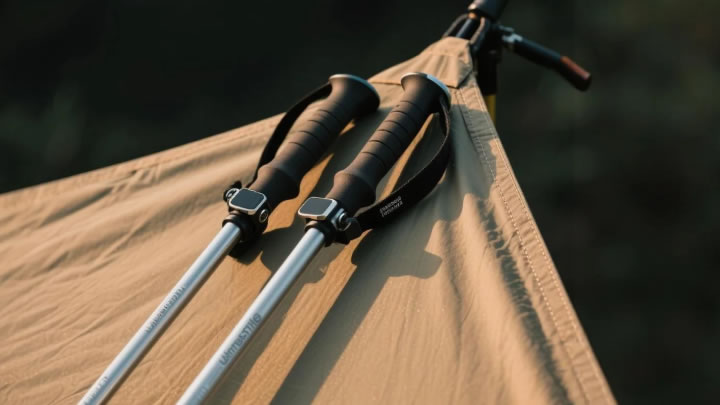Preventing joint failure in cold-weather aluminum Trekking Pole
Aluminum trekking poles transform from reliable allies to liability traps in sub-zero conditions. Cold-induced joint failure – whether seized locks, cracked segments, or catastrophic collapses – stems from material physics, not mere inconvenience. Here’s how to outsmart thermodynamics on winter trails.

The Physics of Cold-Weather Failure
Aluminum’s crystalline structure reacts to freezing temps in two critical ways:
- Cold Embrittlement:Below 15°F (-9°C), 6061/7075 alloys lose 30% ductilityImpact resistance plummets – a 5ft fall can fracture joints
- Thermal Contraction:Sections contract unevenly, jamming locksIce expands in mechanisms by 9%, splitting housings
(Source: ASM International Materials Handbook)
Pre-Season Protocol: Fortify Your Poles
Lubrication Reengineering
| Lube Type | Effective Temp | Winter Performance |
|---|---|---|
| Petroleum Grease | >32°F (0°C) | ❌ Freezes solid |
| Standard Silicone | >5°F (-15°C) | ⚠️ Thickens significantly |
| PTFE Dry Spray | -40°F (-40°C) | ✅ Maintains viscosity |
| Graphite Powder | -60°F (-51°C) | ✅ Zero viscosity change |
Application:
- Disassemble locks → Degrease with alcohol → Apply graphite to threads / PTFE to cams
- Never mix lubricants – chemical reactions create corrosive sludge
Critical Hardware Mods
- Replace Steel Springs: Install titanium lock springs (Black Diamond/Leki kits) – 70% less thermal contraction
- Install Rubber Seals: Add O-rings to segment joints (blocks ice intrusion)
Field Tactics: The Winter Use Hierarchy
Pre-Hike Ritual (Non-Negotiable)
- Store poles vertically indoors (prevent internal condensation)
- Pre-warm in sleeping bag for 30+ minutes
- Assemble before exiting tent – breath moisture freezes locks in 8 minutes
Trailhead Emergency Kit
- Chemical Hand Warmer: Tape to stuck joint for 5 mins (max 100°F/38°C)
- Silicone Impregnated Cloth: Wipe segments before assembly (hydrophobic barrier)
- Bamboo Toothpick: Clear ice from lock teeth
Movement Protocol
- Descents: Shorten poles 5cm – reduces joint torque by 40%
- Stream Crossings: Retract poles fully before exposure
- Collapsing Order:Unlock → Tap joint with rock → Rotate counterclockwise while pullingIf stuck: Place joint under armpit for 2 mins → Gentle twistNever kick or hammer sections!
Failure-Proofing for Extreme Conditions (-22°F / -30°C)
- Pole Selection:Choose external lever locks (LEKI) over twist locks – fewer ice trapsVerify all-aluminum internals (no plastic cam components)
- Anti-Ice Treatments:Apply car wax to lower segments – repels moistureSpray isopropyl alcohol (70%) on locks hourly
- Load Management:Reduce pack weight by 15% – cold embrittlement lowers load tolerance
Post-Hike Salvage Operations
If joints freeze solid:
- Controlled Thaw:Submerge only the joint in 85°F (30°C) water for 90 secondsImmediately disassemble and dry
- Damage Inspection:Check for hairline cracks near locks with magnifying glassTest segment alignment on flat surface (roll test)
Storage Protocol:
- Leave poles partially extended with locks open
- Store in breathable sleeve (never plastic) with silica gel packs
When Prevention Fails: Survival Responses
| Failure Mode | Immediate Action | Long-Term Fix |
|---|---|---|
| Seized Lock | Use as fixed-length pole | Replace spring + ultrasonic clean |
| Cracked Joint | Wrap with vet tape + reduce load | Segment replacement |
| Complete Collapse | Splint with ski strap (see image) | Full lower section replacement |
Why Carbon Fiber Isn’t the Answer
While carbon avoids cold embrittlement:
- ❌ Shatters explosively at -40°F
- ❌ Lacks aluminum’s thermal warning (bending before failure)
- ❌ Repair-impossible in field
The Ultimate Winter Pole Checklist:
☑️ Pre-season graphite/PTFE treatment
☑️ Titanium spring retrofit
☑️ Chemical warmers in repair kit
☑️ -40°F field testing before expeditions
☑️ Monthly microstructure inspection Dec-Mar
“Cold doesn’t break poles – ignorance does. Respect the physics, and they’ll respect you.”






